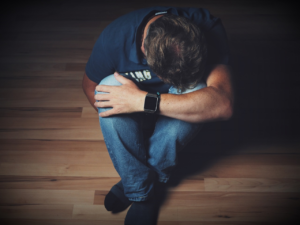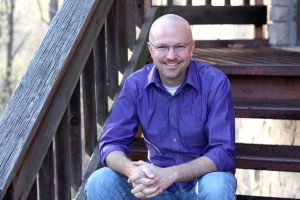
In his book Recovery: Freedom from Our Addictions, comedian, actor, and self-help guide, Russell Brand describes how easy it is to go down the path of acting on your urges to fall back into substance abuse or use addictive behaviors. He writes, “Once I topple, go active, decide to pursue my nominated object of addiction, I inwardly switch to a circuit of behaviors that is distinct from my better nature.” [1]
He likens his addictive behaviors to the transformation of Dr. Jekyll to Mr. Hyde and goes on to say that, “My life is about preserving the conditions where it is less likely that I will quantum leap into the other guy.”
The hard work of sobriety involves a lot of preventative work that decreases the likelihood of urges, but what do you do when the urge to act on addictive behaviors arise? While there are no guaranteed ways to overcome urges, here are some steps you can take to help manage the sensations.
Substance Abuse and Addictive Urges
Label the Urge
The experience of feeling an urge to use addictive behavior grows stronger when you stay silent, and the thoughts and sensations roll around internally. Speak these thoughts and sensations out loud. “I’m aware of the sensation in my chest (stomach, head, etc.) to take a drink” or “I’m aware of the thought that I need to smoke.” Labeling your awareness of these thoughts externalizes them a bit and allows you to take a look at them more objectively.
Tame the Urge
Urges can present themselves as incredibly strong sensations over which you have no control—they feel like something you MUST do. While no one will deny the strength of the urges, it can be helpful to bring reality to the situation by saying, “This is just my brain and body craving this substance (or behavior). It is a strong urge, and it feels uncomfortable, but I’m choosing recovery.”
Ask for Help
 Refuse to deal with urges alone. The more you stay inside your head…, the more you stay inside your head. When you have urges for substance abuse, that is not a good place to be. Get outside of your head by calling a friend, contacting a sponsor, or simply getting to a public place where you can shift your focus to other people.
Refuse to deal with urges alone. The more you stay inside your head…, the more you stay inside your head. When you have urges for substance abuse, that is not a good place to be. Get outside of your head by calling a friend, contacting a sponsor, or simply getting to a public place where you can shift your focus to other people.
Get Focused
Speaking of shifting your focus, find something to do that requires concentration, or what Dr. Jeffrey Schwartz of UCLA calls “thick attention.” Work on a puzzle, or play a game like Suduko, play Tetris, learn a musical instrument. By finding something that requires concentration, not only are you avoiding using the substance, but you are rewiring your brain to new behaviors.
To learn more, visit URGE911.com
REFERENCES:
[1] Brand, R. (2018). Recovery Freedom from our Addictions. London: Bluebird.
[2] Schwartz, J. M. (2011). You Are Not Your Brain: The 4-Step Solution for Changing Bad Habits, Ending Unhealthy Thinking, and Taking Control of Your Life. New York, NY: Avery.
About the Author:
 Travis Stewart, LPC has been mentoring others since 1992 and became a Licensed Professional Counselor in 2005. His counseling approach is relational and creative, helping people understand their story while also building hope for the future. Travis has experience with a wide variety of issues which might lead people to seek out professional counseling help. This includes a special interest in helping those with compulsive and addictive behaviors such as internet and screen addiction, eating disorders, anxiety, and perfectionism. Specifically, he has worked with eating disorders since 2003 and has learned from many of the field’s leading experts. He has worked with hundreds of individuals facing life-threatening eating disorders in all levels of treatment. Travis’ website is wtravisstewart.com
Travis Stewart, LPC has been mentoring others since 1992 and became a Licensed Professional Counselor in 2005. His counseling approach is relational and creative, helping people understand their story while also building hope for the future. Travis has experience with a wide variety of issues which might lead people to seek out professional counseling help. This includes a special interest in helping those with compulsive and addictive behaviors such as internet and screen addiction, eating disorders, anxiety, and perfectionism. Specifically, he has worked with eating disorders since 2003 and has learned from many of the field’s leading experts. He has worked with hundreds of individuals facing life-threatening eating disorders in all levels of treatment. Travis’ website is wtravisstewart.com
The opinions and views of our guest contributors are shared to provide a broad perspective of addictions. These are not necessarily the views of Addiction Hope, but an effort to offer a discussion of various issues by different concerned individuals.
We at Addiction Hope understand that addictions result from multiple physical, emotional, environmental and genetic factors. If you or a loved one are suffering from an addiction, please know that there is hope for you, and seek immediate professional help.
Reviewed and Approved by Jacquelyn Ekern, MS, LPC on February 6, 2020
Published February 6, 2020, on AddictionHope.com
